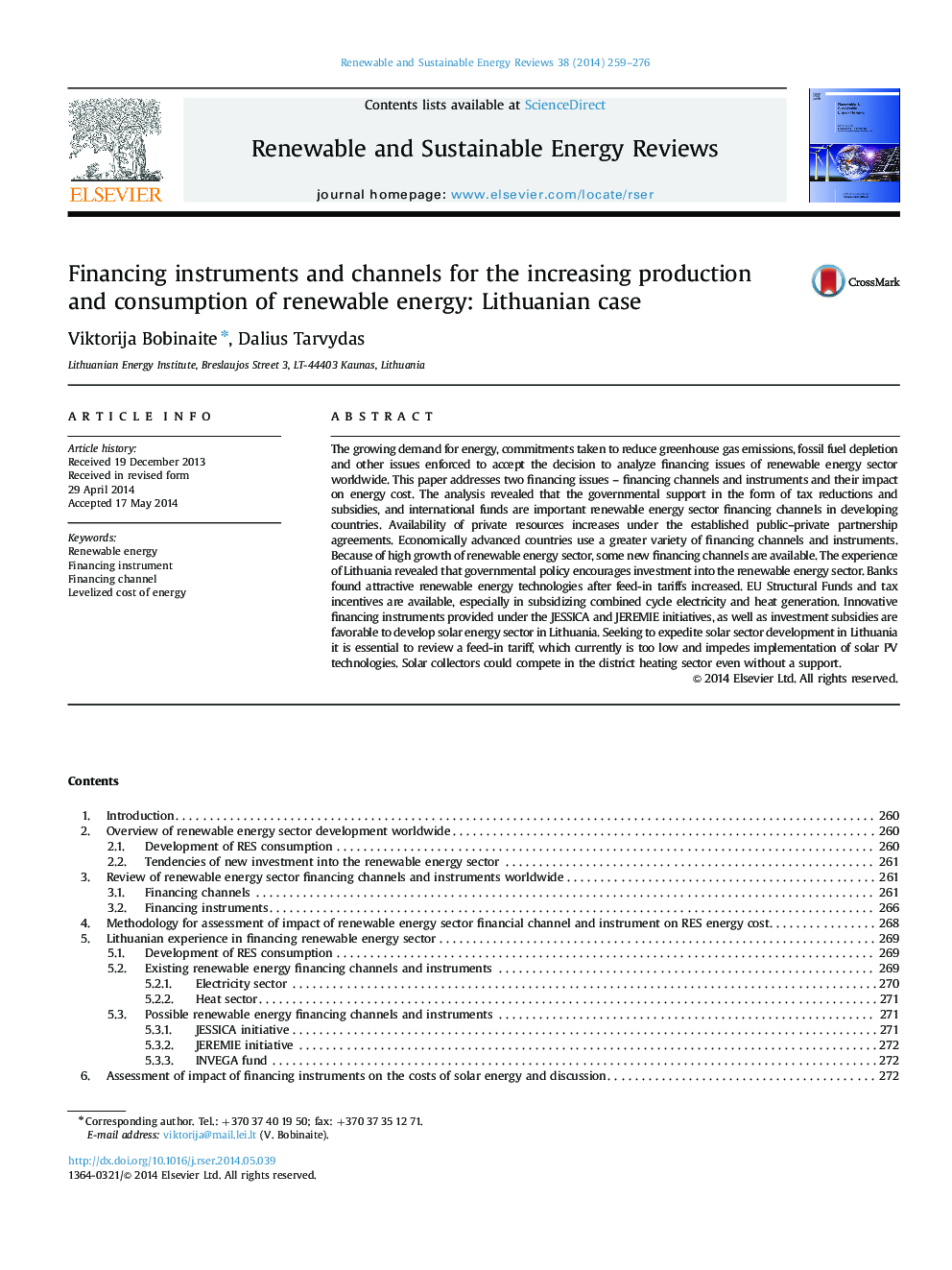| Article ID | Journal | Published Year | Pages | File Type |
|---|---|---|---|---|
| 8119534 | Renewable and Sustainable Energy Reviews | 2014 | 18 Pages |
Abstract
The growing demand for energy, commitments taken to reduce greenhouse gas emissions, fossil fuel depletion and other issues enforced to accept the decision to analyze financing issues of renewable energy sector worldwide. This paper addresses two financing issues - financing channels and instruments and their impact on energy cost. The analysis revealed that the governmental support in the form of tax reductions and subsidies, and international funds are important renewable energy sector financing channels in developing countries. Availability of private resources increases under the established public-private partnership agreements. Economically advanced countries use a greater variety of financing channels and instruments. Because of high growth of renewable energy sector, some new financing channels are available. The experience of Lithuania revealed that governmental policy encourages investment into the renewable energy sector. Banks found attractive renewable energy technologies after feed-in tariffs increased. EU Structural Funds and tax incentives are available, especially in subsidizing combined cycle electricity and heat generation. Innovative financing instruments provided under the JESSICA and JEREMIE initiatives, as well as investment subsidies are favorable to develop solar energy sector in Lithuania. Seeking to expedite solar sector development in Lithuania it is essential to review a feed-in tariff, which currently is too low and impedes implementation of solar PV technologies. Solar collectors could compete in the district heating sector even without a support.
Related Topics
Physical Sciences and Engineering
Energy
Renewable Energy, Sustainability and the Environment
Authors
Viktorija Bobinaite, Dalius Tarvydas,
